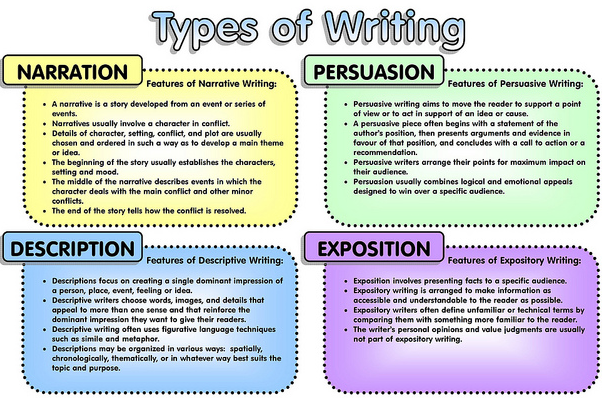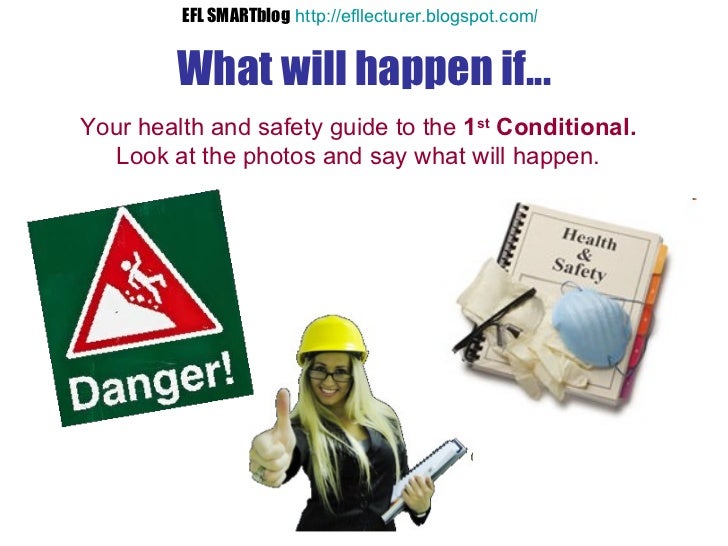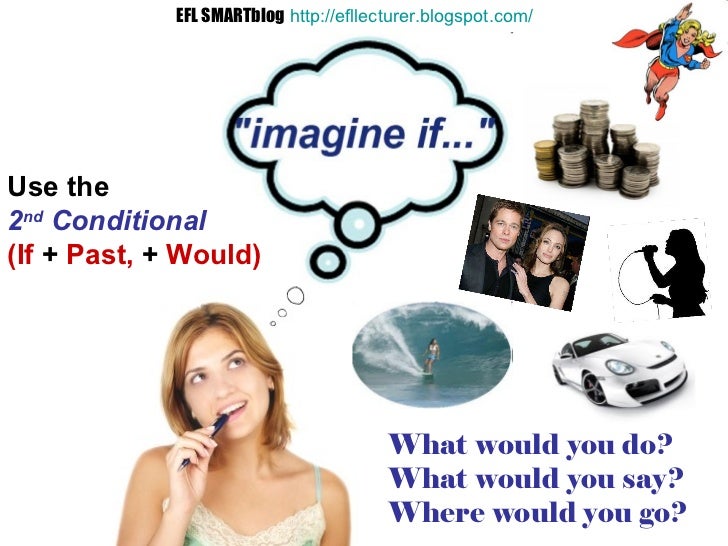¿Sabes qué es una "bucket list"? ¿No? Pues no dejes de visitar la siguiente página donde podrás escuchar un texto en el cual tendrás que completar huecos, además de practicar el futuro perfecto:
http://efllecturer.blogspot.com.es/2013/04/whats-on-your-bucket-list.HTML
Mostrando entradas con la etiqueta 2º BACHILLERATO. Mostrar todas las entradas
Mostrando entradas con la etiqueta 2º BACHILLERATO. Mostrar todas las entradas
miércoles, 22 de abril de 2015
lunes, 23 de marzo de 2015
WORK AND EMPLOYMENT (EL TRABAJO Y EL EMPLEO)
No dejes de visitar esta página donde encontrarás el vocabulario relacionado con el mundo del trabajo y el empleo además podrás escuchar su pronunciación:
http://www.saberingles.com.ar/lists/work.HTML
http://www.englisch-hilfen.de/en/words/jobs.htm

http://www.saberingles.com.ar/lists/work.HTML
http://www.englisch-hilfen.de/en/words/jobs.htm
viernes, 13 de febrero de 2015
LOVE VOCABULARY (VOCABULARIO RELACIONADO CON EL AMOR)
¿Quieres conocer nuevas expresiones y aumentar tu vocabulario? No te pierdas entonces estos enlaces!!!
The language of love. Match the idioms with the expressions:
http://www.learning-with-ease.net/LangofLoveMatch.pdfLo
Love vocabulary with translation into Spanish:
http://lingolex.com/swom/wom-love.htm
Love vocabulary. Very useful:
http://www.bbc.co.uk/worldservice/learningenglish/flatmates/episode29/languagepoint.shtml
Love vocabulary:
http://www.ego4u.com/en/chill-out/quiz/love-test/vocabulary
Words of love:
http://www.english-zone.com/holidays/val-words.html
Love and romance expressions with pictures:
http://www.eslflow.com/Love---romance-vocabulary---speaking-activity.html
The language of love. Match the idioms with the expressions:
http://www.learning-with-ease.net/LangofLoveMatch.pdfLo
Love vocabulary with translation into Spanish:
http://lingolex.com/swom/wom-love.htm
Love vocabulary. Very useful:
http://www.bbc.co.uk/worldservice/learningenglish/flatmates/episode29/languagepoint.shtml
Love vocabulary:
http://www.ego4u.com/en/chill-out/quiz/love-test/vocabulary
Words of love:
http://www.english-zone.com/holidays/val-words.html
Love and romance expressions with pictures:
http://www.eslflow.com/Love---romance-vocabulary---speaking-activity.html
lunes, 9 de febrero de 2015
LOVE QUOTATIONS (CITAS SOBRE EL AMOR)
¿Estás enamorado? ¿Te gustaría conocer lo que grandes personajes han escrito sobre el amor? No te pierdas entonces esta página.
http://www.history.com/topics/valentines-day/valentines-day-quotations

http://www.history.com/topics/valentines-day/valentines-day-quotations
lunes, 2 de febrero de 2015
LOVE IS LIKE LIFE BUT LONGER (EL AMOR ES COMO LA VIDA, PERO MÁS LARGO)
NO DEJES DE VER ESTE CORTO SOBRE EL AMOR, DIRIGIDO POR POPPY DE VILLENEUVE:
LOVE IS....
WATCH THIS VIDEO ABOUT LOVE:
WATCH THIS VIDEO ABOUT THE ORIGINS OF SAIN VALENTINE'S DAY:
14 LESSONS FOR ALL LOVERS DURING SAINT VALENTINE'S DAY
14 CONSEJOS PARA QUE SIGAS LA SENDA CORRECTA EN EL AMOR:
http://www.slideshare.net/bright9977/14-love-lessons-for-all-lovers-during-valentines-day

http://www.slideshare.net/bright9977/14-love-lessons-for-all-lovers-during-valentines-day

WHO WAS SAINT VALENTINE?
¿Quién fue San Valentïn? ¿Quieres resolver todas tus dudas? Entonces no debes dejar de leer este texto:
http://www.linguatics.com/StValentine.html

http://www.linguatics.com/StValentine.html

INSPIRING WRITING
En esta página encontrarás montones de temas inspiradores para escribir, no dejes de visitarla:
http://eslchestnut.com/tag/writing/
Montones de temas interesantes sobre los que escribir:
http://eslchestnut.com/2012/09/22/writing-prompts/

http://eslchestnut.com/tag/writing/
Montones de temas interesantes sobre los que escribir:
http://eslchestnut.com/2012/09/22/writing-prompts/

THE LOTTERY OF LIFE. IF YOU WERE NOT BORN IN THE COUNTRY YOU WERE, WHAT WOULD YOUR LIFE BE LIKE?
Si no hubieras nacido en el país donde lo has hecho, ¿cómo sería tu vida? ¿Te lo has planteado alguna vez?
http://eslchestnut.com/2014/01/25/if-you-were-not-born-in-the-country-you-were-what-would-your-life-be-like/
http://eslchestnut.com/2014/01/25/if-you-were-not-born-in-the-country-you-were-what-would-your-life-be-like/
WHAT WILL HAPPEN IF...
¿Qué ocurrirá si...? ¿Quieres practicar o repasar las oraciones condicionales del primer tipo? Entonces tienes que visitar esta página... ¡a qué estás esperando!
http://efllecturer.blogspot.com.es/2011/12/what-will-happen-if-1st-conditional.html

http://efllecturer.blogspot.com.es/2011/12/what-will-happen-if-1st-conditional.html

WHAT WOULD HAPPEN IF...?
¿Qué ocurriría si el hielo de los polos se derritiera? ¿Qué pasaría si no durmiésemos? Si quieres avergiguarlo, no te pierdas esta página:
http://efllecturer.blogspot.com.es/2011/12/what-would-happen-if-2nd-conditional.html

http://efllecturer.blogspot.com.es/2011/12/what-would-happen-if-2nd-conditional.html

TEN INVENTORS KILLED BY THEIR OWN INVENTIONS (WHAT WOULD HAVE HAPPENED IF...?)
¿Qué habría pasado si...? ¿Lo quieres descubrir? Entonces no dejes de visitar esta página y repasa al mismo tiempo la tercera condicional:
http://efllecturer.blogspot.com.es/2011/12/what-would-have-happened-if-10.html

http://efllecturer.blogspot.com.es/2011/12/what-would-have-happened-if-10.html

viernes, 5 de diciembre de 2014
THE MORE THE BETTER (COMPARATIVE STRUCTURE)
The more the merrier???
Repasa esta estructura comparativa en las siguientes páginas:
http://www.englishgrammar.org/thethe-comparative-adjectives/
http://www.grammar-quizzes.com/themore.html
Ahora practica lo aprendido haciendo ejercicios:
http://www.esl-lounge.com/student/grammar/4g2-the-the-comparatives.php
http://www.tolearnenglish.com/exercises/exercise-english-2/exercise-english-60316.php
https://elt.oup.com/student/englishfile/upperint/e_minigrammar/nef_upperint_minigrammar01?cc=global&selLanguage=en

Repasa esta estructura comparativa en las siguientes páginas:
http://www.englishgrammar.org/thethe-comparative-adjectives/
http://www.grammar-quizzes.com/themore.html
Ahora practica lo aprendido haciendo ejercicios:
http://www.esl-lounge.com/student/grammar/4g2-the-the-comparatives.php
http://www.tolearnenglish.com/exercises/exercise-english-2/exercise-english-60316.php
https://elt.oup.com/student/englishfile/upperint/e_minigrammar/nef_upperint_minigrammar01?cc=global&selLanguage=en
lunes, 3 de noviembre de 2014
REPORTED SPEECH
No te pierdas el siguiente vídeo para aprender y seguir practicando el estilo indirecto:
http://learnenglishteens.britishcouncil.org/grammar-vocabulary/grammar-videos/reported-speech
http://learnenglishteens.britishcouncil.org/grammar-vocabulary/grammar-videos/reported-speech
domingo, 1 de junio de 2014
THE PASSIVE VOICE ( LA VOZ PASSIVA)
En esta página encontrarás una muy buena explicación sobre la voz pasiva. ¡No dejes de leerla!
http://aprendeinglessila.com/2013/05/la-voz-pasiva-en-ingles-passive-voice/

http://aprendeinglessila.com/2013/05/la-voz-pasiva-en-ingles-passive-voice/

domingo, 19 de mayo de 2013
2º BACHILLERATO (READINGS)
Aquí tenéis una lectura muy interesantes para seguir practicando:
B. Complete the table with words from the article.
READING
Graphene – the material of the future
One of the most amazing scientific developments of
recent years is the invention of a new material called graphene. It was
invented by a team of scientists at the University of Manchester in the UK. It
is an incredible material with amazing properties and many potential
applications. Experts agree that this new material will revolutionise the world
of technology in the next few decades.
Graphene is made of carbon, which is one of the most
abundant elements in the universe. Carbon comes in many forms – diamonds are
made of carbon, and so is coal; the lead in your pencil is made of a kind of
carbon called graphite. Graphene is the thinnest material known to man – it is
only one atom thick. You would need to pile up 25,000 sheets of it to make a
pile as thick as one sheet of paper. In fact, it is so thin that you can’t even
see it.
Apart from being invisible and incredibly thin, it is
also the strongest material in the world – around 300 times stronger than
steel. And, despite its strength, it is completely flexible. It also conducts
electricity efficiently.
All of these properties add up to make it the super
material of the future. It will be used to make mobile phones slimmer and
smarter and to make computers smaller and more powerful. Graphene will be used
to make ‘smart’ windows – windows that can change from transparent to opaque.
It will be used to make super strong plastics which will replace metals in the
manufacture of cars and planes. In the not too distant future we’ll see
‘rollable e-paper’ – flexible screens you can read and then roll up and put in
your pocket.
The problem is that, at present, not only is grapheme
the thinnest, strongest and most adaptable material in the world, it is also by
far the most expensive. At the moment the costs of producing graphene make it
economically unviable. But there is huge investment by both governments and
private companies in the new grapheme technology, and it won’t be long before
we see it in products all around us.
A. Decide whether these statements are true or false.
- Graphene hasn’t been invented yet. _____
- There are only limited uses for graphene. _____
- There is a lot of carbon in the world. _____
- One sheet of graphene is the same thickness as one sheet of paper.
_____
- Graphene is a stronger than other metals. _____
- Graphene is not a good conductor of electricity. _____
- They will use graphene in car factories one day. _____
- We won’t have products made from graphene in the near future. _____
|
Adjective
|
Adverb
|
|
complete
|
|
|
|
scientifically
|
|
efficient
|
|
|
|
recently
|
|
economical
|
|
|
|
incredibly
|
|
|
potentially
|
|
|
amazingly
|
2º BACHILLERATO (GRAMMAR AND VOCABULARY REVISION)
Aquí tenéis un montón de ejercicios para repasar el vocabulario y la gramática:
2º BACHILLERATO (REVISION)
VOCABULARY
Phrasal verbs TRAVEL
A. Complete the
sentences using the words in the box.
in
up back down
out after off
x 2
|
- We hired a car when we arrived
at the airport but it broke _____ on the way to the hotel.
- My mum always feels nervous
just as the plane is taking _____ and landing.
- I set _____ at six o’clock so
that I would arrive at the hostel before the other travellers.
- Phone me from the airport after
you’ve checked _____.
- I hate sleeping in a tent
because I can’t put _____ with the mosquitoes and other insects.
- The taxi had to turn _____ when
it reached the mountain road because a tree had fallen and was blocking
the way.
- Would you mind looking _____ my
cat while I’m on holiday next week?
- We are planning to travel for
six months but if we run _____ of money, we’ll be back sooner!
Words often confused
B. Circle the
correct words in each sentence.
- Last year we went on an amazing
travel / trip around Europe.
- We visited about twenty antique / ancient churches along
the route.
- They are staying at a campsite / camping in the Pyrenees.
- This is the most relaxing / relaxed holiday I’ve
had in years!
- I love getting sunburnt / suntanned, don’t you?
- Those people are foreigners / strangers I think –
they are speaking a strange language.
- I’m sure Jack and Mary will pass / spend a lovely time in Las
Vegas.
- You can buy some recollections / souvenirs in the
gift shop at the hotel.
GRAMMAR
Gerunds and Infinitives (+ infinitive without to)
A. Circle the
correct words in each sentence.
- Travelling around Africa makes
you to think / think / thinking
about the comfortable life we lead at home.
- We decided to look / look / looking for a different kind of holiday.
- They enjoy visiting / to visit / visit museums and churches.
- I really think you should taking / to take / take a trip up
to the mountain top; it’s a fantastic view.
- We’re fed up of go / going / to go to the same
place every year; we want a change this year.
- Let’s to get / get / getting some brochures from the travel agency.
- Eating / Eat / To eat exotic gourmet food is one of my favourite things to do on
holiday.
- It’s quite difficult understand / to understand /
understanding the local dialect; you have to use sign language.
B. Complete the
sentences with the correct form of the verbs in brackets.
- I try to avoid ________ to
places where there are lots of tourists. (go)
- We can’t afford ______ a
holiday abroad this year so we’re going to a campsite near the local
beach. (have)
- Hello, pleased ______ you.
(meet)
- I’m going to the bank ______
some traveller’s cheques for our holiday in India. (order)
- I’m not very good at ______
people when I’m travelling around. (meet)
- Can you ______ to China
overland? (get)
- The hotel owner let us ______
our suitcases in the hotel for this morning. (leave)
- ______ alone is not easy – you
have to like your own company. (travel)
C. Complete the
sentences using the words in the box. Use the gerund or the infinitive.
save see have talk go send get write
|
- Don’t forget __________ a new
passport before you go!
- I’ll never forget __________
the Twin Towers in New York before the terrorist attack.
- Did you remember __________ the
postcards?
- I remember __________ them but
I’m not sure if I sent them.
- We stopped at a service station
on the motorway __________ lunch.
- Everyone stopped __________
when the film started.
- We didn’t mean __________ to
Birmingham; we caught the wrong bus!
- For many families, a summer
holiday means __________ up all year round.
D. Complete the
second sentences using the word in bold.
1.
The customs
official wouldn’t let us enter the country. (refused)
The customs official _________________________________________
2.
Jane said she
would book the hotel and the ferry. (agreed)
Jane _____________________________________________________
3.
Do you want to
go to Italy this year? (fancy)
Do you ___________________________________________________
4.
I don’t really
want to go abroad this summer. (feel)
I don’t____________________________________________________
5.
I really hate
spending time on the beach. (stand)
I can’t ____________________________________________________
6.
He said he
would be careful with his money. (promised)
He ______________________________________________________
7.
I haven’t got
enough money to go to Paris. (afford)
I ________________________________________________________
8.
The landowner
allowed us to fish in the river. (let)
The landowner _____________________________________________
Grammar review (modal verbs, reported speech, the
passive, conditionals)
A. Choose the
correct option: A, B or C.
- I think you _____ book a hotel
before you go.
- must
- should
- ought
- Everyone _____ off the bus and
show their passports when we arrived at the border.
- must get
- must have got
- had to get
- We _____ for any of the meals
in the hotel – everything was included.
- didn’t have to pay
- mustn’t pay
- mustn’t have paid
- There’s nobody waiting for the
bus – I think we _____ it!
- must have missed
- must miss
- have must miss
- I’m not quite sure where we are
– we _____ anywhere!
- can be
- could be
- must be
- You _____ a ticket before you
got on the train.
- should buy
- should bought
- should have bought
- You _____ smoke on the bus –
it’s strictly forbidden!
- can’t
- don’t have to
- haven’t to
- You _____ Bill in the
supermarket today; he’s on holiday in China!
- can’t see
- couldn’t see
- can’t have seen
B. Complete the
sentences using the verbs in brackets. Use the correct tense.
1. If we catch the 9 o’clock train, we __________ in
Paris in time for lunch. (arrive)
2. What will he do if he __________ the bus? (miss)
3. If I __________ enough money, I’d gone on holiday
tomorrow. (have)
4. Where would you go if you ___________ go anywhere in
the world? (can)
5. If I were rich, I __________ all my time travelling
around the world. (spend)
6. What _____ you ____ if you found someone’s passport?
(do)
7. If I’d known you were coming to visit, I __________ a
meal for us! (cook)
8. We __________ at the station on time if we’d come by
taxi. (arrive)
C. Correct the
mistakes in these sentences.
- He told to me that he was going
to travel around the world.
- She said that she will meet us
in the park the following day.
- They asked him where was the
beach.
- I asked him was he on holiday.
- The lawyer advised us that we
complain about the hotel.
- The guide told us to not go
outside the city centre.
- Do you know weather or not the
shops are open this afternoon?
- I asked him how long had he
been travelling.
D. Complete the
second sentence. Use the passive form.
1.
Someone is
going to fix my camper van.
I’m ______________________________________________________
2.
The government
has passed a new law to promote rural tourism.
A new law ________________________________________________
3.
They are
building a huge holiday centre near the beach.
A huge holiday centre _______________________________________
4.
They have
opened a new airport near the city.
A new airport ______________________________________________
5.
A consortium of
businessmen bought the ski resort last year.
The ski resort______________________________________________
6.
They will
probably open a new hotel here.
A new hotel _______________________________________________
7.
They will have
invented space travel for tourists by 2050.
Space travel for tourists _____________________________________
8.
They can sell
thousands of train tickets an hour using this new machine.
Thousands of train tickets an hour ______________________________
Relative
clauses
A.
Complete the sentences. Choose the
best option: A, B or C.
- There’s a place in Switzerland _____ they found the Higgs Bosun particle.
A. where
B. which
C. who
- Graphene is a new material _____ was invented in Manchester.
- what
- where
- which
- Tesla was the man _____ discovered electricity, although many
people think it was Thomas Edison.
- who
- which
- what
- I like inventions _____ humanity.
- which they help
- which help
- who help
- She’s the girl _____ father is a famous nuclear scientist.
- who
- whom
- whose
- Graphene, _____ was invented in Manchester, is the material of the
future.
- that
- which
- where
- Stephen Hawkings, _____ is one of the world’s best-known
physicists, is appearing on our programme to explain what happens around a
black hole.
- that
- who
- whom
- Richard Dawkins, _____ books have sold millions, is an expert in
the field.
- who
- who’s
- whose
B.
Complete the sentences. Write who, which, where or whose.
- This is the material ________ is going to change the future of
construction.
- Brian Cox is a famous physicist ________ used to be a famous
musician.
- This is the telescope ________ Galileo used to make his
calculations about the movement of the planets.
- He’s a scientist ________ I really admire.
- This is the place ________ Copernicus was born.
- Einstein, ________ theory of relativity is one of the greatest
scientific achievements, wasn’t a brilliant student.
- The new invention, ________ will revolutionise the communications
industry, will be available next year.
- The two scientists, ________ worked on the project for three years,
have been awarded the Nobel Prize for Physics.
C.
Which of the relative pronouns in
exercise B can be replaced with that?
D.
In which of the following
sentences can the relative pronoun be omitted? Write a ✓if it can
be omitted or a X if it cannot be omitted.
- This is a field of science which I find difficult to understand.
- This is the scientist who discovered the new particle.
- This is the new product that I was telling you about.
- This is the product that will change the way we communicate with
each other.
- He’s the physicist whose books explain quantum physics in a simple
way.
- ‘Thumb generation’ is a phrase which is used to describe the
children of today because of their skills with mobile phones.
- Mr Jones, who says he has invented an amazing new gadget, is coming
to see you tomorrow.
- These days, mobile phones are an item that we just can’t do
without.
Defining
relative clauses
E.
Rewrite the two sentences as one
sentence using the word in brackets.
Example: She’s the
actress. She plays the lead role. (who)
She’s the actress who
plays the lead role.
- Brian Cox is a physicist. He appears on TV a lot. (who)
- This is a book. It is about inventions of the future. (which)
- That’s the school. Albert Einstein studied there. (where)
- This is a product. It will sell millions. (that)
Non-defining
relative clauses
F.
Rewrite the two sentences as one
sentence using the word in brackets.
Example: This
restaurant is very expensive. It is popular with tourists. (which)
This restaurant, which
is popular with tourists, is very expensive.
- My sister works as a nuclear scientist. She lives in
Switzerland.
- The product will be launched next spring. It was developed by
Apple. (which)
- Stephen Hawkins is tonight’s special guest. His new book is a
best seller. (whose)
- The laboratory is now a museum. Marie Curie discovered radiation
there. (where)
Reported
speech
A. Circle the
correct words in each sentence.
- The scientist told / said
journalists that he hoped to be able to reveal the new discovery that day.
- They explained that the new product would be / will be in the shops before Christmas.
- The inventor said that he worked
/ had worked on the project for ten years.
- She asked us to have / that
we have a look at the new product.
- He asked me if I knew what
graphene was / what was graphene.
- I wonder what Einstein was
doing / what was Einstein doing when he came up with his famous E =
MC2.
- The police told everyone to
go / to everyone go home after the demonstration.
- The company marketing department have suggested to change / changing the logo of
the new product.
B. Complete
the second sentences with direct speech.
- She asked me if I had seen the new product.
_________________________________________ she asked
me.
- We asked him what the material was made of.
_________________________________________ we asked
him.
- He asked us what we would be doing at this time next year.
_________________________________________ he asked us.
- The journalist asked him how long he had been working on the new product.
_________________________________________ the
journalist asked him.
- They said they were going to visit the new factory the following
day.
_________________________________________ they said.
- The reporter said that they had launched the satellite into space
from right there where she was standing.
_________________________________________ said the
reporter.
- He told us to have a look at the new product.
_________________________________________ he told us.
- The technician asked us politely not to touch anything.
_________________________________________ the
technician said politely.
Suscribirse a:
Entradas (Atom)